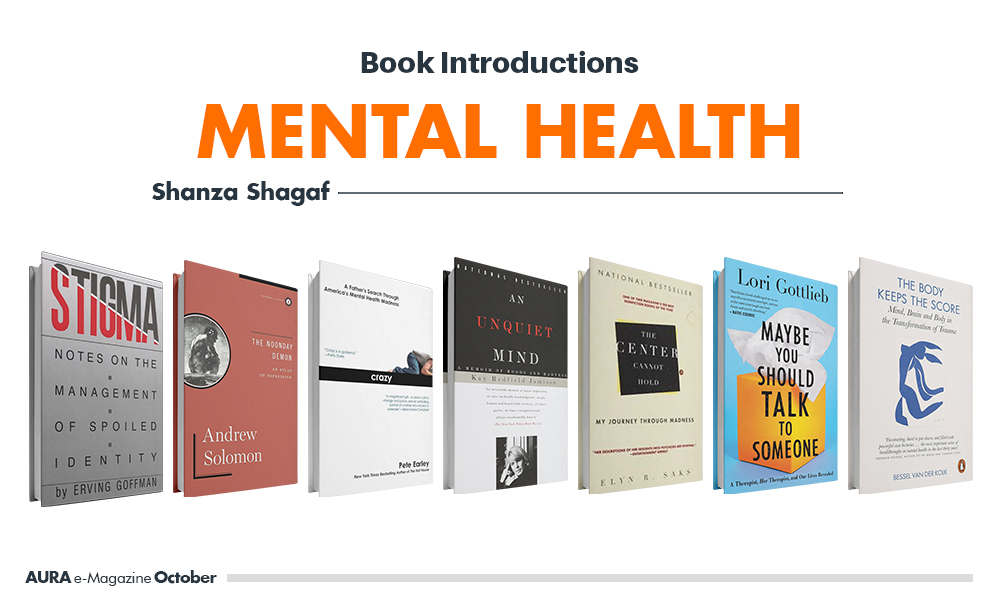In this essay, the author introduces some major books on major mental health, stigma, depression, and other related topics.
Introduction
Mental health is a fundamental aspect of overall well-being that influences how individuals think, feel, and act. Despite its importance, mental health has historically been overshadowed by stigma, misinformation, and neglect. As awareness grows, it’s crucial to have open conversations about mental health, understand its complexities, and provide support to those in need. This article delves into the significance of mental health awareness, the impact of stigma, and ways to foster a supportive environment, drawing on insights from influential books on the subject.
The Importance of Mental Health
Mental health encompasses emotional, psychological, and social well-being. It affects how individuals handle stress, relate to others, and make decisions. When mental health is neglected, it can lead to various issues, such as depression, anxiety, and substance abuse. Conversely, good mental health promotes resilience, productivity, and healthy relationships.
In “The Noonday Demon: An Atlas of Depression” by Andrew Solomon, the author explores the multifaceted nature of depression, highlighting how it permeates various aspects of life. Solomon provides a comprehensive examination of impact of depression on individuals and society, emphasizing the need for awareness and understanding in addressing mental health challenges.
The Stigma Surrounding Mental Health
One of the biggest barriers to mental health awareness is the stigma attached to mental illness. This stigma often stems from misconceptions and fear, leading to discrimination and social isolation for those affected. In “Stigma: Notes on the Management of Spoiled Identity” by Erving Goffman, the author discusses how societal perceptions shape the experience of those with mental illnesses. Stigma can prevent individuals from seeking help, exacerbating their conditions and perpetuating a cycle of suffering.
Stigma not only affects individuals but also impacts public perception and policy. In “Crazy: A Father’s Search Through America’s Mental Health Madness” by Pete Earley, the author recounts his personal journey through the mental health care system. Earley’s exploration reveals how societal stigma contributes to inadequate mental health care and the criminalization of mental illness.
Breaking the Silence
Breaking the silence around mental health is crucial for creating a more inclusive and supportive society. Conversations about mental health should be normalized, and education about mental illnesses should be prioritized. In “The Center Cannot Hold: My Journey Through Madness” by Elyn R. Saks, the author recounts her battle with schizophrenia while pursuing a successful career in law and academia. Saks’ story is a powerful reminder of the importance of discussing mental health openly and combating the misconceptions that fuel stigma.
Education plays a pivotal role in dismantling stigma. In “An Unquiet Mind: A Memoir of Moods and Madness” by Kay Redfield Jamison, the author provides a first-hand account of living with bipolar disorder. As a clinical psychologist, Jamison offers both personal and professional insights into mental illness, advocating for education and empathy as key components in mental health awareness.
The Role of Community and Support Systems
Support systems play a crucial role in mental health recovery and management. Friends, family, and communities can provide the necessary emotional support and understanding that individuals need. In “Lost Connections: Uncovering the Real Causes of Depression – and the Unexpected Solutions” by Johann Hari, the author explores how societal factors such as disconnection and lack of meaningful relationships contribute to mental health issues. Hari advocates for a collective approach to mental health, where community and societal changes can foster well-being.
Programs and initiatives that promote mental health awareness are vital. These can include support groups, mental health education in schools, and workplace wellness programs. In “The Body Keeps the Score: Brain, Mind, and Body in the Healing of Trauma” by Bessel van der Kolk, the author discusses the importance of understanding and treating trauma in mental health. Van der Kolk emphasizes the need for a holistic approach to mental health care, including community support and integrative therapies.
Seeking Help and Professional Support
Encouraging individuals to seek professional help is a critical aspect of mental health awareness. Therapists, counselors, and psychiatrists are trained to provide the necessary support and interventions for those struggling with mental health issues. In “Maybe You Should Talk to Someone: A Therapist, HER Therapist, and Our Lives Revealed” by Lori Gottlieb, the author offers a glimpse into the therapeutic process from both the therapist’s and patient’s perspectives. Gottlieb’s work underscores the importance of therapy and the transformative power of seeking help.
Conclusion
Raising mental health awareness is a collective responsibility that requires education, empathy, and action. By understanding mental health, breaking the silence, and providing support, society can foster an environment where individuals feel safe to seek help and share their experiences. Books like “The Noonday Demon,” “Stigma,” “The Center Cannot Hold,” and others provide invaluable insights into the complexities of mental health, serving as resources for those seeking to learn more and contribute to the conversation. Let us work together to destigmatize mental health and build a world that prioritizes the well-being of all its members.


0 Comments